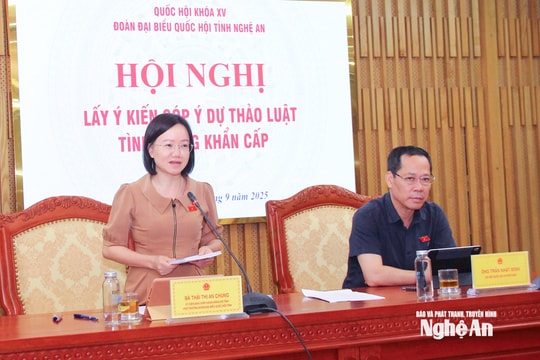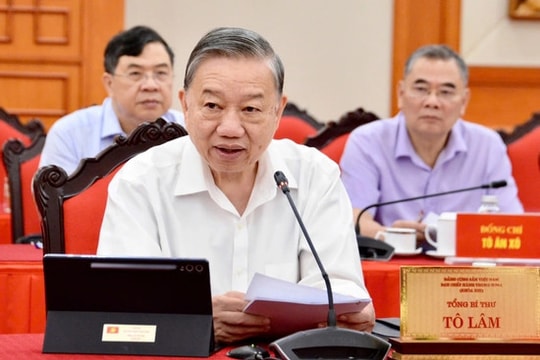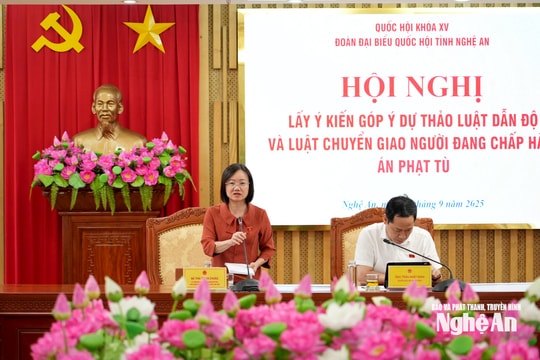Nghe An National Assembly Delegate: Avoid legal gaps in criminal enforcement
(Baonghean.vn) - On the morning of November 19, continuing the 6th session, the National Assembly held a plenary session in the hall to discuss the draft Law on Enforcement of Criminal Judgments (amended). Delegates from Nghe An delegation contributed their opinions on this draft.
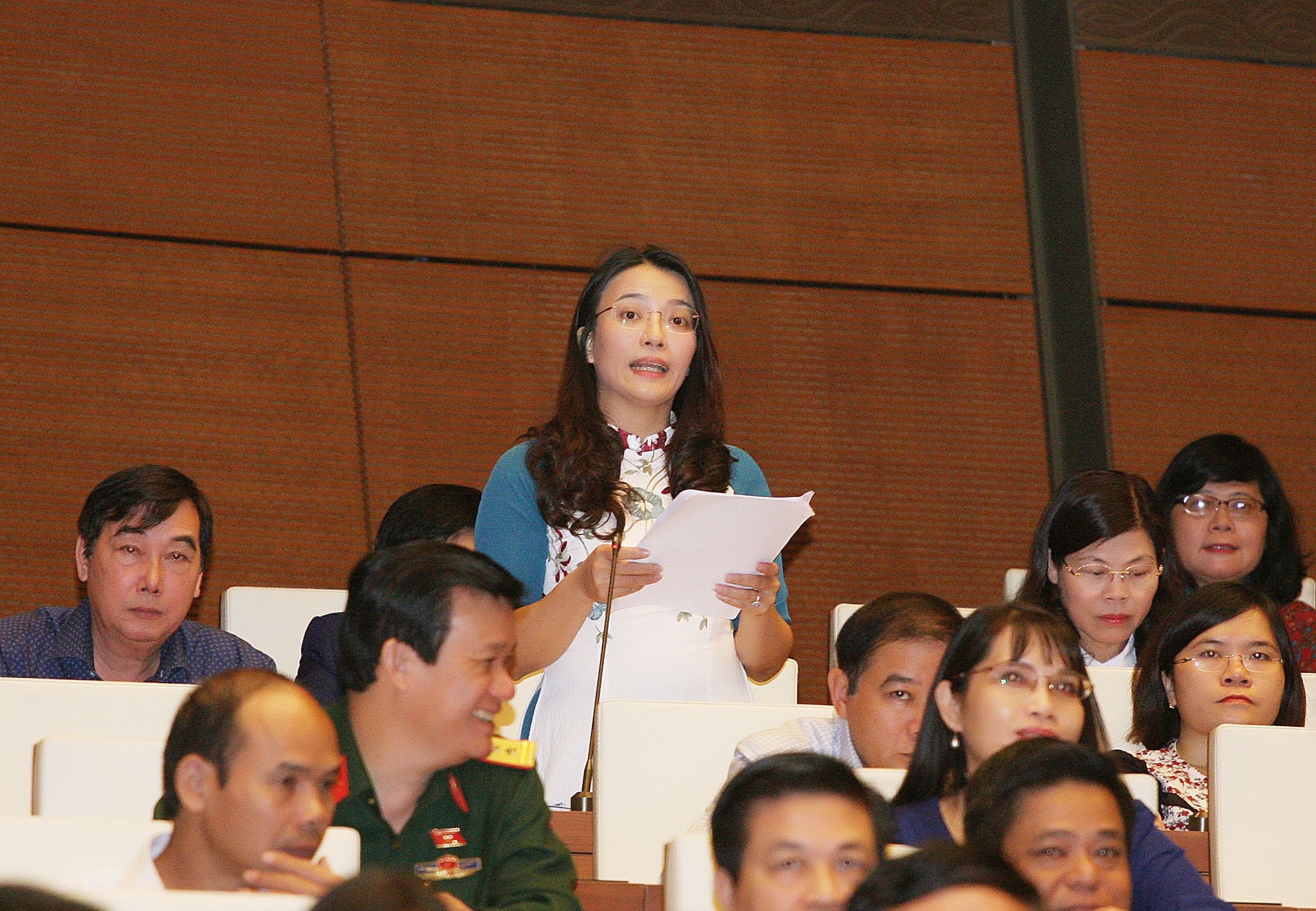 |
| Delegate Hoang Thi Thu Trang participated in the discussion in the hall. Photo: Thanh Loan |
Delegate Hoang Thi Thu Trang expressed her agreement with the proposal to consider and pass the draft law following the procedure of three sessions. However, the delegate pointed out that if the draft law is passed following the procedure of three sessions, the draft law will not be passed until 2019 and will take effect at the earliest in December 2019.
Meanwhile, the 2015 Penal Code (amended) has been in effect since January 1, 2018, meaning that within 2 years there is no legal basis to organize the implementation of new contents of the Penal Code such as the execution of criminal sentences against commercial legal entities... Therefore, delegates suggested that the National Assembly and the Government pay attention to finding appropriate solutions to avoid the situation of lacking legal basis to implement the provisions of the 2015 Penal Code (amended).
Delegate Hoang Thu Trang also expressed concerns about clemency in the execution of death sentences. The delegate stated that in Clause 4, Article 6 of the International Covenant on Civil and Political Rights, of which Vietnam is a member state, it affirms:Anyone sentenced to death has the right to seek clemency, or to have the sentence commuted. Amnesty, pardon, or commutation of the death penalty may be granted in all cases..
Article 367 of the 2015 Criminal Procedure Code also specifically regulates this issue. However, it does not stipulate the maximum time for the competent authority to reject or not reject the clemency application. Delegate Trang pointed out the reality that in recent years, many people sentenced to death have submitted clemency applications, but the State has decided to reject or not to reject the competent authority, so the criminal enforcement agency does not dare to execute the sentence, and the convict is also in a state of waiting to die. During that process, many complicated problems have occurred, for example, some people have written a petition to die, some have made trouble, found ways to put great pressure on prison officers and have many potential risks.
Therefore, delegate Hoang Thi Thu Trang suggested that when studying this law, there should be a solution to remove the above-mentioned obstacles in the direction of regulations within a certain period of time to reduce the pressure on the competent person in deciding whether to reject or not, as well as to overcome the current "waiting to die" situation.
Regarding the enforcement of criminal judgments against commercial legal entities, delegate Trang shared that this is a difficult content when drafting the law, because it is completely new, lacking a basis for summarizing and assessing the impact. However, the delegate said that the provisions in the current draft are still quite general, mainly stopping at the assignment of tasks without anticipating all situations that will occur in practice.
The delegate gave specific examples, such as the lack of specificity in Articles 172, 176, 179, 183 of the draft law on enforcement of civil judgment enforcement decisions, which all stipulate thatThe criminal enforcement agency shall coordinate with the state management agency to summon the representative of the commercial legal entity to notify the decision to enforce the judgment., but it has not yet been regulated how to handle the case where the legal representative of a commercial legal entity does not come or deliberately avoids it.
In Articles 173, 177, 180, 184, 189 of the draft stipulatesIn case a commercial legal entity fails to comply with the judgment, it will be considered, a decision on enforcement will be issued or a report will be made to the competent authority to issue a decision on enforcement., but the draft does not specify how long it takes for commercial legal entities to voluntarily comply and who has the authority to make the enforcement decision in this case.
The delegate suggested that the nature of the penalties should be assessed, for example, permanent suspension, temporary suspension or business ban.

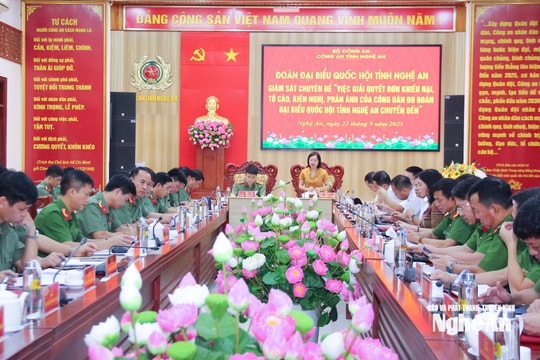


.jpg)
